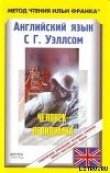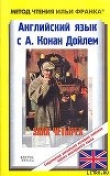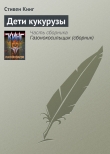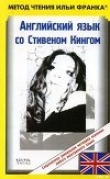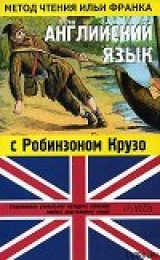
Текст книги "Английский язык с Робинзоном Крузо (в пересказе для детей)"
Автор книги: Илья Франк
Соавторы: James Baldwin
Жанры:
Языкознание
,сообщить о нарушении
Текущая страница: 1 (всего у книги 21 страниц) [доступный отрывок для чтения: 8 страниц]
Английский язык с Робинзоном Крузо (в пересказе для детей)
Robinson Crusoe Written Anew for Children by James Baldwin
Адаптировал Илья Франк
Метод чтения Ильи Франка
I WISH TO BE A SAILOR
(я хочу быть моряком)
MY name is Robinson Crusoe (мое имя = меня зовут Робинзон Крузо). I was born in the old city of York (я родился: «был рожден» в старом городе Йорке), where there is a broad river (где есть широкая река; there is/are – имеется), with ships coming and going (с кораблями приходящими и уходящими).
When I was a little boy (когда я был маленьким мальчиком), I spent much of my time (я проводил много своего времени; to spend – проводить /время/) looking at the river (глядя на реку).
How pleasant was the quiet stream (каким красивым был тихий поток; pleasant – приятный; радостный; милый, симпатичный), flowing, always flowing (текущий, постоянно текущий; to flow – течь; always – всегда, неизменно), toward the far-away sea (по направлению к далекому морю; far-away – далекий, дальний; far – далеко; away – прочь)!

I liked to watch the ships (мне нравилось смотреть на корабли) as they came in (когда они приходили) with their white sails (с белыми парусами) spread to the wind (распростертыми на ветру; to spread – развертывать/ся/; раскидывать/ся/; простирать/ся/; расстилать/ся/).
I liked to think of the strange lands (мне нравилось думать о чуждых землях) which they must have visited (которые они, должно быть, посетили: «должны были посетить»), and of the many wonderful things (и о многих прекрасных вещах/событиях) they must have passed (которые они, должно быть, увидели/с которыми столкнулись).
I wished to be a sailor (я хотел быть моряком). I thought how grand it must be to sail and sail (я думал: как прекрасно, должно быть: «это должно быть» плавать под парусами; sail – парус; to sail – плавать на яхте, ходить на яхте, идти под парусами) on the wide blue sea (по широкому синему морю), with the sky above (с небом наверху) and the waves beneath (и волнами внизу). Nothing could be pleasanter (ничто не могло быть приятнее).
My father wanted me to learn a trade (мой отец хотел, чтобы я научился ремеслу). But I could not bear the thought of it (но я не мог вынести мысли об этом). I could not bear the thought of working every day in a dusty shop (я не мог вынести мысли о работе каждый день в пыльном магазине; dust – пыль).
I did not wish to stay in York all my life (я не желал оставаться в Йорке все жизнь). I wanted to see the world (я хотел увидеть мир). I would be a sailor and nothing else (я хотел быть моряком и никем другим).
My mother was very sad when I told her (моя мать была печальна, когда я сказал ей; to tell – говорить; рассказывать).
A sailor's life, she said, was a hard life (жизнь моряка, сказала она, это тяжелая жизнь). There were many storms at sea (на море бывает много штормов/бурь), and ships were often wrecked (и корабли часто терпят крушение; wreck – крушение).
She told me, too, that there were great fishes in the sea (она также сказала мне, что есть = встречаются в море огромные рыбы), and that they would eat me up if I fell into the water (и что онисъедят меня, если я упаду в воду).
Then she gave me a cake (затем она дала мне пирог), and kissed me (и поцеловала меня). "How much safer it is to be at home (как много = насколько безопаснее быть = оставаться дома)!" she said.
But I would not listen to her (но я не слушал ее). My mind was made up (мое решение было принято; to make up one's mind – принять решение: «настроить свой разум»; mind – разум; умственные способности; ум; настроение, расположение духа), and a sailor I would be (и /все же именно/ моряком я хотел стать).
When I was eighteen years old (когда мне было восемнадцать лет), I left my pleasant home and went to sea (покинул мой милый дом и отправился в море).
pleasant [pleznt], quiet [ˈkwaɪǝt], toward [tǝˈwɔ:d], spread [spred], visit [ˈvɪzɪt], beneath [bɪˈni:Ɵ], world [wǝ:ld]
I WISH TO BE A SAILOR
MY name is Robinson Crusoe. I was born in the old city of York, where there is a broad river, with ships coming and going.
When I was a little boy, I spent much of my time looking at the river.
How pleasant was the quiet stream, flowing, always flowing, toward the far-away sea! I liked to watch the ships as they came in with their white sails spread to the wind.
I liked to think of the strange lands which they must have visited, and of the many wonderful things they must have passed.
I wished to be a sailor. I thought how grand it must be to sail and sail on the wide blue sea, with the sky above and the waves beneath. Nothing could be pleasanter.
My father wanted me to learn a trade. But I could not bear the thought of it. I could not bear the thought of working every day in a dusty shop.
I did not wish to stay in York all my life. I wanted to see the world. I would be a sailor and nothing else.
My mother was very sad when I told her.
A sailor's life, she said, was a hard life. There were many storms at sea, and ships were often wrecked.
She told me, too, that there were great fishes in the sea, and that they would eat me up if I fell into the water.
Then she gave me a cake, and kissed me. "How much safer it is to be at home!" she said.
But I would not listen to her. My mind was made up, and a sailor I would be.
When I was eighteen years old, I left my pleasant home and went to sea.
I MAKE MY FIRST VOYAGE
(я совершаю мое первое путешествие)
I SOON found that my mother's words were true (я вскоре нашел = понял, что слова матери были правдой; to find – находить). A sailor's life is indeed a hard life (жизнь моряка /и/ в самом деле тяжелая жизнь; hard – жесткий; трудный, тяжелый).

There was no time for play on board of our ship (не было времени для игр на борту нашего корабля). Even in the fairest weather (даже при самой хорошей погоде) there was much work to be done (было много работы, которую нужно было сделать: «которая должна была быть сделана»).
On the very first night the wind began to blow (в самую первую ночь начал дуть ветер). The waves rolled high (волны катились высоко). The ship was tossed this way and that (корабль бросало туда и суда; to toss – бросать, кидать, швырять). Never had I seen such a storm (никогда я не видел такого шторма; to saw – видеть).
All night long the wind blew (всю ночь напролет дул ветер; to blow – дуть). I was so badly frightened (я был так сильно напуган; badly – скверно, дурно, плохо; крайне, очень сильно /придает эмоционально-усилительный оттенок/) that I did not know what to do (что не знал, что делать). I thought the ship would surely go to the bottom (я подумал, что что корабль наверняка пойдет на дно; surely – конечно, непременно).
Then I remembered my pleasant home and the words of my kind mother (тогда я вспомнил мой милый дом и слова моей доброй матери).
"If I live to reach dry land (если я доживу /того, что/ доберусь до суши: «достигну сухой земли»)," I said to myself, "I will give up this thought of being a sailor (я откажусь от мысли быть моряком; to give up – оставить, отказаться; бросить /напр.мысль, привычку/). I will go home and stay with my father and mother (я отправлюсь домой и буду жить: «оставаться/пребывать» с моими отцом и матерью). I will never set my foot in another ship (я никогда не поставлю мою ногу на другой корабль = нога моя не ступит ни на какой корабль)."
Day came (день пришел = настал день). The storm was worse than before (штром был хуже, чем прежде). I felt sure that we were lost (я почувствовал точно = был уверен, что мы были потеряны = что мы пропали; to feel – чувствовать; sure – уверенный; убедившийся; to lose – терять, утрачивать). But toward evening (но /ближе/ к вечеру) the sky began to clear (небо начало проясняться; to begin – начинать/ся/). The wind died away (ветер стих; to die – умирать; затихать /о ветре, звуке/). The waves went down (волны успокоились: «опустились»). The storm was over (закончился; to be over – заканчиваться; over – по ту сторону, за, через).
The next morning the sun rose bright (на следующее утро солнце встало ярким; to rise – вставать, подниматься) and warm upon a smooth sea (и теплым над ровным морем; smooth – гладкий). It was a beautiful sight (это был прекрасный вид).
As I stood looking out over the wide water (пока я стоял, смотря вдаль на широкую воду; to stand – стоять; out – наружу), the first mate came up (подошел первый помощник капитана; mate – товарищ; напарник; подручный, помощник; /мор./ помощник капитана /в торговом флоте/; to come up – подходить). He was a kind man (он был добрым человеком), and always friendly to me (и всегда дружелюбным по отношению ко мне).
"Well (ну), Bob," he said, "how do you like it (как тебе это нравится)? Were you frightened by that little gale (/не/ был /ли/ ты напуган этим ветерком; gale – шторм; буря; ветер от 7 до 10 баллов /порыв, движущийся со скоростью от 51 до 100 километров в час/; /поэт./ ветерок, зефир)?"
"I hope you don't call it a little gal (надеюсь, вы не называете = не станете же вы называть это ветерком)," I said. "Indeed it was a terrible storm (на самом деле это был ужасный шторм)."
The mate laughed (помощник капитана засмеялся).
"Do you call that a storm (ты называешь это штормом)?" he asked (спросил он). "Why, it was nothing at all (да ну, это было ничто вообще = был сущий пустяк; why – почему?; междометие, выражающее самые разнообразные эмоции в зависимости от контекста: удивление, согласие или несогласие, нетерпение и т. п.). You are only a fresh-water sailor (ты всего лишь пресноводный моряк; fresh water – пресная вода; fresh – свежий), Bob. Wait till we have a real storm (подожди, пока у нас будет настоящий шторм)."
And so I soon forgot my fears (и так я вскоре забыл свои страхи; to forget – забывать).
Little by little (мало-помалу), I gave up all thoughts of going home again (я бросил мысли снова отправиться = вернуться домой). "A sailor's life for me (жизнь моряка /это/ для меня)," I said.
My first voyage was not a long one (мое первое путешествие не было долгим).
I visited no new lands (я не посетил новых земель/стран), for the ship went only to London (так как корабль сходил только в Лондон). But the things which I saw in that great city (но вещи, которые я увидел в великом городе) seemed very wonderful to me (казались мне весьма удивительными).
Nothing would satisfy me but to make a long voyage (ничто не могло бы удовлетворить меня, кроме /как/ совершить длинное путешествие). I wished to see the whole world (я желал увидеть весь мир).
indeed [ɪnˈdi:d], board [bɔ:d], weather [ˈweðǝ], done [dʌn], began [bɪˈɡæn], frighten [ˈfraɪt(ǝ)n], surely [ˈʃuǝlɪ], worse [wǝ:s], smooth [smu:ð], beautiful [ˈbju:tǝfǝl], friendly [ˈfrendlɪ], terrible [ˈterǝbl], laugh [lɑ:f], forgot [fǝˈɡɔt], fear [ˈfɪǝ], voyage [ˈvɔɪɪʤ], wonderful [ˈwʌndǝfǝl], satisfy [ˈsætɪsfaɪ], whole [hǝul]
I MAKE MY FIRST VOYAGE
I SOON found that my mother's words were true. A sailor's life is indeed a hard life. There was no time for play on board of our ship. Even in the fairest weather there was much work to be done.
On the very first night the wind began to blow. The waves rolled high. The ship was tossed this way and that. Never had I seen such a storm.
All night long the wind blew. I was so badly frightened that I did not know what to do. I thought the ship would surely go to the bottom.
Then I remembered my pleasant home and the words of my kind mother.
"If I live to reach dry land," I said to myself, "I will give up this thought of being a sailor. I will go home and stay with my father and mother. I will never set my foot in another ship."
Day came. The storm was worse than before. I felt sure that we were lost. But toward evening the sky began to clear. The wind died away. The waves went down. The storm was over.
The next morning the sun rose bright and warm upon a smooth sea. It was a beautiful sight.
As I stood looking out over the wide water, the first mate came up. He was a kind man, and always friendly to me.
"Well, Bob," he said, "how do you like it? Were you frightened by that little gale?"
"I hope you don't call it a little gale," I said. "Indeed it was a terrible storm."
The mate laughed.
"Do you call that a storm?" he asked. "Why, it was nothing at all. You are only a fresh-water sailor, Bob. Wait till we have a real storm."
And so I soon forgot my fears.
Little by little, I gave up all thoughts of going home again. "A sailor's life for me," I said.
My first voyage was not a long one.
I visited no new lands, for the ship went only to London. But the things which I saw in that great city seemed very wonderful to me.
Nothing would satisfy me but to make a long voyage. I wished to see the whole world.
I SEE MUCH OF THE WORLD
(я вижу мир)
IT was easy to find a ship to my liking (было легко найти корабль по моему вкусу); for all kinds of trading vessels (так как все виды торговых судов; vessel – сосуд /для жидкости/; корабль, судно) go out from London to every country that is known (выходят из Лондона в каждую страну, которая известна).
One day I met an old sea captain (однажды я встретил старого морского капитана; to meet – встречать) who had been often to the coast of Africa (который часто был на побережье Африки). He was pleased with my talk (ему понравился мой разговор = то, что я ему говорил).
"If you want to see the world (если ты хочешь увидеть мир)," he said, "you must sail with me (ты должен/тебе нужно выйти в море со мной)." And then he told me that he was going again to Africa (а затем он сказал мне, что собирается опять вАфрику), to trade with the black people there (торговать там с черными людьми; to trade – торговать; обменивать/ся/). He would carry out a load of cheap trinkets (он собирается повезти /туда/ груз дешевых безделушек; to carry – везти, перевозить) to exchange for gold dust and feathers (чтобы обменять на золотую пыль = на золотой песок и перья) and other rare and curious things (и на другие редкие и любопытные вещи).
I was very glad to go with him (был очень рад отправиться с ним). I would see strange lands (я увижу чужие страны; strange – чужой; чуждый; незнакомый, неизвестный; странный, необыкновенный; удивительный) and savage people (и диких людей). I would have many a stirring adventure (у меня будут = меня ждут многие интереснейшие приключения; stirring – волнующий, возбуждающий, вдохновляющий; to stir – шевелить; волновать, возбуждать).
Before ten days had passed (прежде чем десять дней прошли = не прошло и десяти дней), we were out on the great ocean (/как/ мы были в великом океане = в открытом море/океане). Our ship was headed toward the south (наш корабль был направлен = направлялся к югу).
The captain was very kind to me (капитан был очень добр ко мне). He taught me much that every sailor ought to know (он научил меня тому, что должен знать каждый моряк; to teach – учить). He showed me how to steer (он показал мне, как править /рулем/) and manage the vessel (и управляться с судном). He told me about the tides (он рассказал мне о приливах и отливах; tide – прилив и отлив: a tide comes in – вода приливает a tide ebbs/goes out – вода убывает, спадает) and the compass (и компасе) and how to reckon the ship's course (и как вычислять курс корабля).
The voyage was a pleasant one (путешествие было приятным), and I saw more wonderful things (и я видел больше прекрасных вещей) than I can name (чем могу назвать).
When, at last, we sailed back to London (когда, наконец, мы отправились обратно в Лондон), we had gold enough (у нас было достаточно золота) to make a poor man rich (чтобы сделать бедного человека богатым).
I had nearly six pounds of the yellow dust (у меня было почти шесть фунтов желтой пыли = желтого песка) for my own share (в качестве моей собственной доли).
I had learned to be a trader (я научился быть торговцем) as well as a sailor (равно как и моряком).
It would take too long (заняло бы слишком долго = много времени) to tell you of all my voyages (рассказывать вам обо всех моих путешествиях). Some of them were happy and successful (некоторые из них были счастливыми и успешными; success – успех); but the most were unpleasant and full of disappointment (но большинство были неприятными и полными разочарований; to disappoint – разочаровывать).
Sometimes I went to Africa (иногда я отправлялся в Африку), sometimes to the new land of South America (иногда – в новые земли Южной Америки). But wherever I sailed I found the life of a sailor by no means easy (но куда бы я ни плавал, я находил жизнь моряка вовсе не легкой; means – средства; by no means – никоим образом не; ни в коем случае не; нисколько не, отнюдь не).
I did not care so much now (не заботился столь много теперь = не особенно стремился) to see strange sights (увидеть странные = необычные виды) and visit unknown shores (и посетить неизвестные берега).
I cared more for the money or goods (я больше заботился = думал о деньгах или товарах) that I would get by trading (которые я получу торговлей = в результате торговли).
At last a sudden end was put to all my sailing (в конце концов неожиданный конец был положен всем моим морским путешествиям; to sail – путешествовать морем; sail – парус). And it is of this that I will now tell you (и об этом я и расскажу вам сейчас).
easy [ˈi:zɪ], find [ˈfaɪnd], vessel [vesl], country [ˈkʌntrɪ], captain [ˈkæptɪn], pleased [pli:zd], trinket [ˈtrɪŋkɪt], exchange [ɪksˈtʃeɪnʤ], feather [ˈfeðǝ], rare [ˈreǝ], curious [ˈkjuǝrɪǝs], savage [ˈsævɪʤ], adventure [ǝdˈventʃǝ], pass [pɑ:s], great [ˈɡreɪt], ocean [ˈǝuʃ(ǝ)n], head [hed], ought [ɔ:t], steer [ˈstɪǝ], manage [ˈmænɪʤ], compass [ˈkʌmpǝs], reckon [ˈrek(ǝ)n], course [ˈkɔ:s], enough [ɪˈnʌf], poor [ˈpuǝ], successful [s(ǝ)kˈsesful], disappointment [ˌdɪsǝˈpɔɪntmǝnt]
I SEE MUCH OF THE WORLD
IT was easy to find a ship to my liking; for all kinds of trading vessels go out from London to every country that is known.
One day I met an old sea captain who had been often to the coast of Africa. He was pleased with my talk.
"If you want to see the world," he said, "you must sail with me." And then he told me that he was going again to Africa, to trade with the black people there. He would carry out a load of cheap trinkets to exchange for gold dust and feathers and other rare and curious things.
I was very glad to go with him. I would see strange lands and savage people. I would have many a stirring adventure.
Before ten days had passed, we were out on the great ocean. Our ship was headed toward the south.
The captain was very kind to me. He taught me much that every sailor ought to know. He showed me how to steer and manage the vessel. He told me about the tides and the compass and how to reckon the ship's course.
The voyage was a pleasant one, and I saw more wonderful things than I can name.
When, at last, we sailed back to London, we had gold enough to make a poor man rich.
I had nearly six pounds of the yellow dust for my own share.
I had learned to be a trader as well as a sailor.
It would take too long to tell you of all my voyages. Some of them were happy and successful; but the most were unpleasant and full of disappointment.
Sometimes I went to Africa, sometimes to the new land of South America. But wherever I sailed I found the life of a sailor by no means easy.
I did not care so much now to see strange sights and visit unknown shores.
I cared more for the money or goods that I would get by trading.
At last a sudden end was put to all my sailing. And it is of this that I will now tell you.
I UNDERTAKE A NEW VENTURE
(я предпринимаю новое рискованное начинание; venture – рискованное предприятие, рискованное начинание)
I HAD grown very tired of being a sailor (я стал очень уставшим от /того, что/ был моряком = мне весьма надоело…; to grow – расти; становиться). I was so tired of it that I made up my mind to try something else (я настолько устал от этого, что принял решение попытать что-то другое; to try – пробовать, испытывать).

It happened that I was then in Brazil (случилось, что я был тогда в Бразилии). I bought some land there (я купил там сколько-то = некоторое количество земли; to buy – покупать) and began to open a plantation (и начал открывать = основывать плантацию). The ground was rich (земля/почва была богатой), and it would be easy to raise tobacco and sugar cane (и было бы легко выращивать табак и сахарный тростник).
But I needed many things (но мне нужно было много вещей). I must have plows and hoes and a sugar mill (я должен иметь = у меня должны быть плуги, и мотыги, и сахарную мельницу = сахарный завод). Above all (и прежде всего: «выше всего») I must have men (у меня должны быть люди) to do the work on the plantation (чтобы делать работу = чтобы работать на плантации).
But neither men nor tools could I get in Brazil (но ни людей, ни инструментов я не мог достать в Бразилии).
I sent to London for the tools (я послал в Лондон за инструментами; to send – посылать). I tried to buy some slaves of the planters near me (я попытался купить рабов у плантаторов около меня), but they had not enough for themselves (но у них не было достаточно для самих себя).
"We will tell you what to do (мы скажем тебе, что делать)," they said. "We will fit out a trading vessel for Africa (мы снарядим торговое судно в Африку). We will put aboard of it everything that you need (мы доставим на борт все, в чем нуждаешься = что будет тебе нужно; to put – помещать, класть, ставить; aboard – на борту; на борт). As for your part (что касается твоей части), you shall be the manager of the business (ты будешь управляющим этого дела/предприятия); and you shall do the trading for us (и будешь заниматься торговлей за нас). You need not put in a penny of your own (тебе не нужно вкладывать ни пенни своих /денег/)."
"But how is that going to help me (но как это поможет мне)?" I asked (спросил я).
"Listen, and we will tell you (послушай, и мы скажем тебе)," they said. "With the goods which we send (с товарами, которые мы посылаем), you will buy as many black slaves as the ship will hold (ты купишь столько черных рабов, сколько выдержит корабль; to hold – держать). You will bring them here (ты привезешь их сюда), and we will divide them equally (и мы разделим их поровну; equal – равный, одинаковый). You shall share with us (ты поделишься с нами), just as though you had paid the money (как если бы ты заплатил деньги; just – точно, как раз, именно, поистине /о месте, времени, образе совершения действия/; to pay – платить)."
The plan pleased me very much (этот план мне очень понравился). I figured that each one of us would have thirty or forty slaves (я рассчитал, что каждый из нас получит тридцать или сорок рабов).
It was very foolish of me to go to sea again (было весьма глупо с моей стороны вновь отправиться в море); but the offer was so good (но предложение было столь хорошим = выгодным) that I could not say No (не мог сказать «нет»).
The ship was soon fitted out for the voyage (корабль был вскоре подготовлен для путешествия/поездки; to fit – быть впору, быть в самый раз, подходить /к чему-л./; /также to fit out/ снаряжать, оснащать). Her load was not very heavy (груз не был очень тяжелым). But there were plenty of goods (но было много товаров) such as were most fit for trade (таких, которые были наиболее подходящими для торговли).
There were boxes of red and blue beads (ящики красного и синего бисера), of bits of glass (кусочков стекла), and of other trinkets (и других безделушек). There were also knives and hatchets (были также ножи и топорики) and little looking-glasses (и маленькие зеркала). We reckoned that each one of these would buy a slave (мы подсчитали, что каждый /предмет/ из этих купит = позволит купить раба).
The ship was to carry fourteen men (корабль должен был везти четырнадцать человек) besides the captain and myself (помимо капитана и меня). She (он /корабль в англ. языке – женского рода/) was as fine a little vessel (был таким прекрасным маленьким судном = суденышком) as ever sailed from the coast of Brazil (которое когда-либо отходило в море от берега Бразилии).
tired [ˈtaɪǝd], bought [ˈbɔ:t], plantation [plænˈteɪʃ(ǝ)n], tobacco [tǝˈbækǝu], sugar [ˈʃuɡǝ], plow [ˈplau], hoe [ˈhǝu], could [kud], aboard [ǝˈbɔ:d], business [ˈbɪznǝs], divide [dɪˈvaɪd], equally [ˈi:kwǝlɪ], figure [ˈfɪɡǝ], again [ǝˈɡe(ɪ)n], load [ˈlǝud], heavy [ˈhevɪ], hatchet [ˈhætʃɪt], buy [ˈbaɪ], carry [ˈkærɪ], coast [ˈkǝust], Brazil [brǝˈzɪl]
I UNDERTAKE A NEW VENTURE
I HAD grown very tired of being a sailor. I was so tired of it that I made up my mind to try something else. It happened that I was then in Brazil. I bought some land there and began to open a plantation. The ground was rich, and it would be easy to raise tobacco and sugar cane. But I needed many things. I must have plows and hoes and a sugar mill. Above all I must have men to do the work on the plantation.
But neither men nor tools could I get in Brazil.
I sent to London for the tools. I tried to buy some slaves of the planters near me, but they had not enough for themselves.
"We will tell you what to do," they said. "We will fit out a trading vessel for Africa. We will put aboard of it everything that you need. As for your part, you shall be the manager of the business; and you shall do the trading for us. You need not put in a penny of your own."
"But how is that going to help me?" I asked.
"Listen, and we will tell you," they said. "With the goods which we send, you will buy as man black slaves as the ship will hold. You will bring them here, and we will divide them equally. You shall share with us, just as though you had paid the money."
The plan pleased me very much. I figured that each one of us would have thirty or forty slaves.
It was very foolish of me to go to sea again; but the offer was so good that I could not say No.
The ship was soon fitted out for the voyage. Her load was not very heavy. But there were plenty of goods such as were most fit for trade.
There were boxes of red and blue beads, of bits of glass, and of other trinkets. There were also knives and hatchets and little looking-glasses. We reckoned that each one of these would buy a slave.
The ship was to carry fourteen men besides the captain and myself. She was as fine a little vessel as ever sailed from the coast of Brazil.

